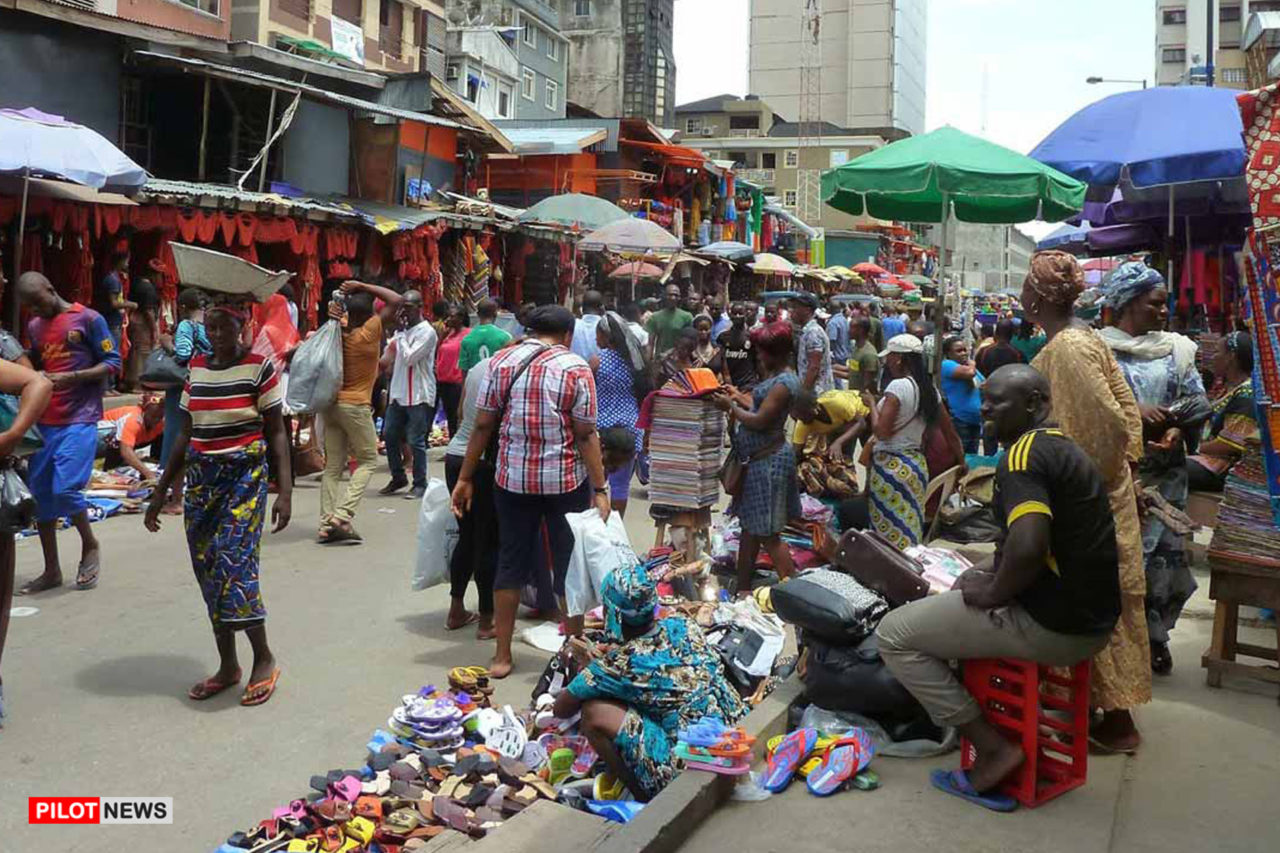The National Bureau of Statistics, NBS, has announced a decline in Nigeria’s headline inflation rate to 33.40 per cent in July, representing a 0.8 per cent point decrease from the 34.19 per cent recorded in June.
According to the NBS Consumer Price Index and Inflation Report for July, released on Thursday in Abuja, the year-on-year inflation rate in July 2024 was 9.32 per cent higher than the rate recorded in July 2023, which stood at 24.08 per cent.
The report stated, “This means that in July 2024, the rate of increase in the average price level is lower than the rate of increase in the average price level in June 2024.”
The NBS attributed the increase in the headline index for July 2024 to the rise in prices of some goods and services, including food and non-alcoholic beverages, housing, water, electricity, gas, and other fuel.
The food inflation rate in July 2024 increased to 39.53 per cent on a year-on-year basis, which was 12.55 per cent higher compared to the rate recorded in July 2023 at 26.98 per cent.
The report noted that the rise in food inflation was caused by increases in prices of semovita, yam flour, wheat flour, yam, Irish potatoes, water yam, groundnut oil, palm oil, milo, bournvita, Ovaltine, among others.
On a month-on-month basis, the food inflation rate in July was 2.47 per cent, which was a 0.08 per cent decrease compared to the rate recorded in June 2024 at 2.55 per cent.
The core inflation rate, which excludes the prices of volatile agricultural produce and energy, stood at 27.47 per cent in July on a year-on-year basis, representing a 6.99 per cent increase compared to 20.47 per cent recorded in July 2023.
The NBS report showed that the highest increases were recorded in prices of rents, bus journey intercity, journeys by motorcycle, accommodation service, laboratory service, x-ray photography, consultation fee of a medical doctor, among others.
On states’ profile analysis, the report revealed that Bauchi recorded the highest inflation rate of 46.04 per cent, followed by Jigawa at 40.77 per cent, and Kebbi at 37.47 per cent from July 2023 to July 2024. Benue recorded the slowest rise in headline inflation at 27.28 per cent, followed by Delta at 28.06 per cent, and Borno at 28.33 per cent.
In July 2024, all items inflation rate on a month-on-month basis was highest in Abuja at 3.91 per cent, followed by Borno at 3.84 per cent, and Enugu at 3.76 per cent. Taraba at 0.71 per cent, followed by Kwara at 0.62 per cent and Ondo at 0.91 per cent recorded the slowest rise in month-on-month inflation.
The report said on a year-on-year basis, food inflation was highest in Sokoto at 46.26 per cent, followed by Jigawa at 46.05 per cent, and Enugu at 44.06 per cent. Adamawa at 33.48 per cent, followed by Bauchi at 35.10 per cent and Benue at 36.41 per cent recorded the slowest rise in food inflation on a year-on-year basis.
The report, however, said on a month-on-month basis, food inflation was highest in Borno at 5.07 per cent, followed by Sokoto at 4.99 per cent, and Enugu at 4.17 per cent. Kwara at 0.51 per cent, followed by Taraba at 0.56 per cent and Ondo at 0.68 per cent, recorded the slowest rise in inflation on a month-on-month basis.
- PDP Says Presidential Ticket Open to Jonathan, Other Southern Aspirants - January 22, 2026
- Police Confirm Kidnapping of 177 Kaduna Christians After Initial Denial - January 22, 2026
- Emir Sanusi II Returns to School As a 200-Level Law Student - January 21, 2026

